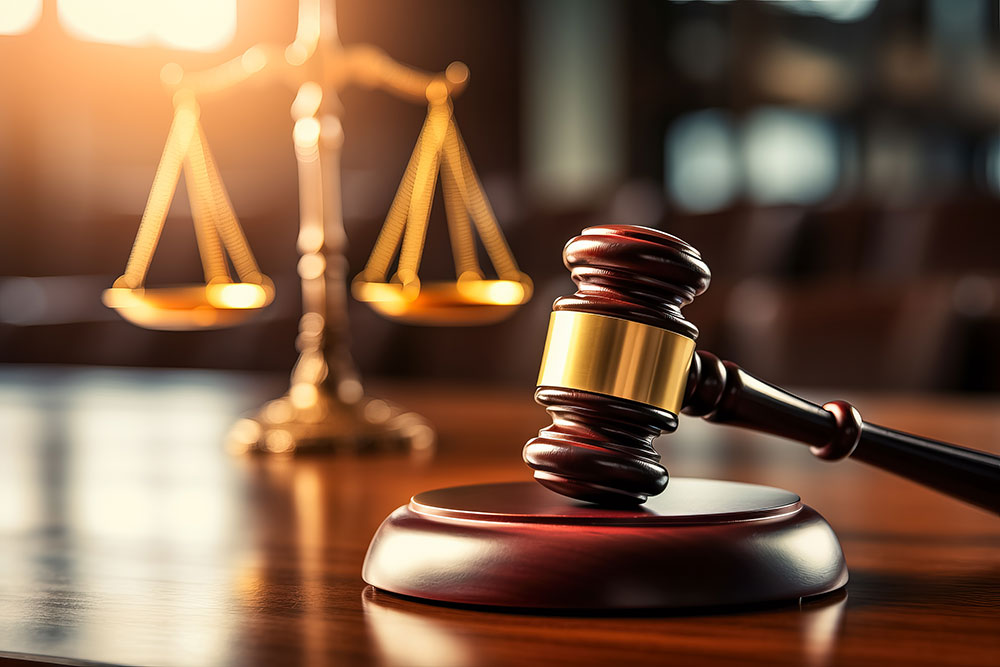How to handle digital assets in an estate plan or after death starts by thoroughly inventorying all digital accounts and files, such as social media profiles, email accounts, cryptocurrencies, online banking, and cloud storage. However, this step alone might not ensure a stress-free probate process.
As digital assets such as cryptocurrency, non-fungible tokens (NFTs), online bank accounts, or even social media profiles reshape the estate planning process, families who willed digital assets may need legal support to protect their legacy.
The following legal insights from experienced estate planning lawyers can help clarify how to handle digital bequests, when to seek the help of a legal professional, and why strict adherence to the law is necessary to avoid headaches or complications during the process.
What Are Digital Assets?
Digital assets include any online content or property you own or control. These assets exist in a digital format, often requiring login credentials to access. Common examples include:
- Online financial accounts: Bank accounts, investment portfolios, cryptocurrency, or reward programs (e.g., airline miles).
- Social media platforms: Facebook, Instagram, Twitter, LinkedIn, TikTok, and others may contain valuable data or sentimental memories.
- Digital businesses: E-commerce sites like Etsy shops or eBay stores, plus their associated customer data and revenues.
- Media or files in cloud storage: Photos, documents, videos, and music files stored in platforms like Google Drive, Dropbox, or iCloud.
- Subscription services: Paid services such as Netflix, Spotify, or subscription-based writing and design tools.
Without effective legal guidance, you or your loved ones may miss out on the opportunity to share in a legacy of digital wealth.
What Makes Digital Assets in Wills Legally Challenging?
Unlike tangible property, such as real estate or family heirlooms, digital assets present unique challenges for estate planning, such as:
- Access limitations: Many accounts are protected by passwords, encryption, or two-factor authentication, complicating access without proper permissions.
- Privacy laws: Federal and state laws often govern digital privacy, making it difficult for unauthorized individuals to access accounts after death.
- Service provider terms of use: Each platform has rules for handling accounts after death, which may prove legally stronger than a simple will or verbal instructions.
These complexities can create roadblocks for families trying to recover or manage digital assets after a loved one passes. This is why including them in your estate plan is so vital.
The Legal Framework for Digital Assets

The Revised Uniform Fiduciary Access to Digital Assets Act (RUFADAA) offers specific legal guidelines on this topic. Here’s a closer look at the main legal factors you need to consider:
- RUFADAA adoption in Alabama allows you to grant a fiduciary (such as an executor or trustee) access to your digital assets according to your instructions.
- Your estate planning documents, such as wills, trusts, and powers of attorney, must include explicit language about digital assets to make these instructions legally binding.
- The law allows you to grant or restrict access to specific digital accounts and can override some service provider agreements if your wishes are clearly stated.
- Legal provisions under RUFADAA make it possible to guide how assets like cloud storage, digital currencies, and social media accounts are to be accessed, managed, or deleted after death or incapacity.
A complex patchwork of state, federal, and provider-specific rules often controls digital assets. By proactively addressing your digital life in your estate plan, you ensure that your wishes, not just the default terms of service, guide what happens to your digital legacy.
Handling Digital Assets After Death Without an Estate Plan in Place
When an estate plan does not clearly address digital assets, legal professionals bring clarity and authority to a process that might otherwise be mired in confusion or inadvertent legal violations. Here are ways an attorney can assist when digital assets need to be handled after death without a clear estate plan:
- Assess the legal standing of family members or fiduciaries: Determine who is authorized to act and under what laws or court orders, reducing potential disputes among heirs.
- Communicate with digital service providers: Draft formal requests, present legal documents, and interpret platform responses, ensuring all actions are grounded in Alabama and federal law.
- Pursue necessary legal remedies: Guide families through court petitions, such as seeking an order for account access, or responding to service provider denials or challenges.
- Advise on privacy and liability risks: Explain the consequences of unauthorized access and help avoid potential breaches of user agreements, privacy laws, or other legal pitfalls.
Relying on experienced legal counsel can help protect families from costly missteps and preserve the decedent’s intended legacy in an increasingly digital world. Proactive legal guidance can help achieve a smoother resolution for digital assets, no matter how complex the situation.
How To Handle Digital Assets in an Estate Plan or After Death FAQs
What happens to digital assets stored on devices like phones or computers?
Digital assets stored on personal devices may be accessible to family members, but accessing them without proper authorization could violate privacy laws or user agreements. Consulting a lawyer ensures these assets are handled legally and in line with the decedent’s wishes.
Can digital assets be transferred to multiple heirs?
Digital assets may be divided among heirs, but the process depends on the type of asset and the platform’s terms of service. A legal professional can help structure your estate plan to allocate these assets fairly and efficiently.
What should I do if a service provider denies access to a deceased loved one’s account?
Service providers often have strict policies regarding account access. If access is denied, a lawyer can assist in filing the necessary legal petitions or navigating the provider’s requirements to resolve the issue.
Are there tax implications for inheriting digital assets?
Some digital assets, like cryptocurrency or online business revenues, may have tax implications. An attorney or tax advisor can help you understand and address these obligations to avoid unexpected liabilities.
How can I ensure my digital assets are managed if I become incapacitated?
Including digital assets in a durable power of attorney allows a trusted individual to manage them on your behalf if you cannot do so. A lawyer can help draft this document to ensure it complies with state laws and your specific needs.
Contact Southern Estate Lawyers For Comprehensive Legal Support Managing Digital Assets in an Estate Plan or After Death
Digital assets are integral to modern estates, yet they’re often overlooked until complications arise. Including them in your estate planning ensures they’re handled according to your wishes, offering financial security and preserving sentimental value for those you leave behind.
Are you ready to explore comprehensive estate planning, including strategies to manage your digital assets? Learn more by contacting Southern Estate Lawyers online or at (251) 444-7000. We will help you explore your legal options to find solutions that work best for you and your loved ones.



